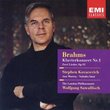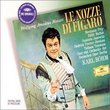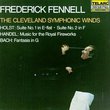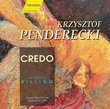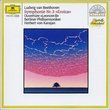| All Artists: B. Bartok, Marin Alsop, Bournemouth Symphony Orchestra Title: Bartok: The Wooden Prince Members Wishing: 0 Total Copies: 0 Label: Naxos Original Release Date: 1/1/2008 Re-Release Date: 3/25/2008 Genre: Classical Styles: Ballets & Dances, Ballets, Historical Periods, Modern, 20th, & 21st Century, Symphonies Number of Discs: 1 SwapaCD Credits: 1 UPC: 747313053476 |
Search - B. Bartok, Marin Alsop, Bournemouth Symphony Orchestra :: Bartok: The Wooden Prince
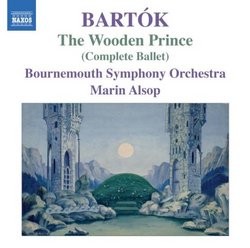 | B. Bartok, Marin Alsop, Bournemouth Symphony Orchestra Bartok: The Wooden Prince Genre: Classical |
Larger Image |
CD DetailsSimilarly Requested CDs
|
CD ReviewsTimber! Jim Shine | Dublin, Ireland | 03/27/2008 (4 out of 5 stars) "Naxos has recently been doing well by 20th-century ballets; last year we had Roussel's Bacchus et Ariane, Ginastera's Panambi and Estancia, and Shostakovich's Golden Age. To this list I think we can add this new recording of The Wooden Prince. This ballet, first staged in 1917, has been criticised for being second-rate Bartok, and I suppose if one were being mean one could say that apart from a few Hungarian rhythms it's something of a knock-off of Stravinsky's Firebird. But if I may be permitted a weak pun, this is somewhat a case of not seeing the wood for the trees - the question is surely whether it's enjoyable in its own right, not in comparison to Bartok's later output. For me it's a most entertaining hour.
The gist of the plot is that a prince sees a princess from across a forest, but his attempt to go to her is foiled by a fairy, who wishes him to stay in the forest. The prince decides to create a wooden puppet to attract the princess, although this somewhat backfires when the princess falls in love with the dummy. Eventually the fairy takes pity on him, the dummy falls apart, and the prince and princess are united. I have to say the booklet notes are somewhat confusing, omitting the fairy's change of heart - I had to do some further reading to clarify things. The climax of the ballet is not the ending, but the moment when the fairy shows the despairing prince the majesty of nature. This is indeed one of the highlights, another being the opening, which is conceptually similar to that of Wagner's Rheingold, building from a single low, quiet chord to a big climax. In fact, like all good ballets, the work is a series of highlights. It seems to me to fall somewhere between a by-the-numbers work and an outright tone poem, and Bartok himself described it as "a symphonic poem to be danced to". The narrative within the music is clear enough for you not to need to see the action. I've not heard any other recordings, so I can't offer a comparison, but this seems a fine performance. I really liked the Roussel and Ginastera discs I mentioned above, and this one makes a good companion." |


